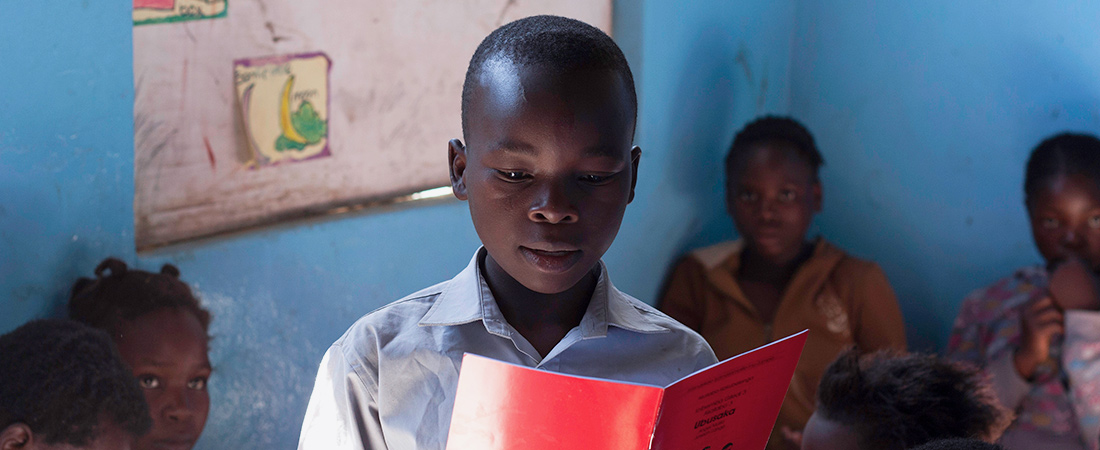
Literacy and mathematical programs deliver the promise of education to millions of children around the world.
We create and test learning experiences that lead to deep understanding and an ability to act thoughtfully upon the world. Whether in settings that are rich or poor in resources, we are committed to building sound foundations in literacy, science, and mathematics.
Through engaging classroom curricula, media instruction, digital tools, and teacher training, we equip children and young adults with the fundamentals they need to be successful—in school and in life.
Related Content
A Second Chance at School in Mali
In Mali, accelerated education is helping thousands of children get back to school.
Is Social Media Harmful to Students with Disabilities?
A new report on social media finds some benefits, but higher cyberbullying rates.
3 Ways to Stop the Summer Slide
Want to help kids keep learning this summer? Here are some tips for parents and caregivers.
How Schools Can Support Students Affected by Opioids
The trauma children experience as a result of opioid misuse at home can affect how they do in school—but schools can help.
3 Ways Schools Can Support Children Affected by the Opioid Crisis
Schools are uniquely positioned to address the needs of children exposed to trauma, says Shai Fuxman.
Accelerating Education in Liberia
An estimated 300,000 Liberian children do not attend school. What’s being done to provide more access to education?
Projects
Resources
Here are a few of our resources on behavioral, physical, and mental health. To see more, visit our Resources section.
In this midterm evaluation of the Basa Pilipinas project in the Philippines, EDC tracked and measured changes in student reading performance.
Math for All is a multi-media mathematics professional development resource for general and special education teachers.
This resource is designed to help K–8 teachers prepare their students to succeed in STEM learning in high school and thrive in STEM careers.
EDC, in collaboration with District 75 Citywide Programs, New York City Department of Education, conducted a rigorous study of Structured Methods in Language Education (SMiLE), a highly structured, multisensory reading program designed to provide the high-need population of students with significant cognitive disabilities who are non- or beginning readers with the skills to access authentic text, become readers and move towards greater independence
This report shares the findings from a landscape study commissioned by The Wallace Foundation and conducted by EDC to advance knowledge of how school districts ensure and improve the quality of the
This online hub contains a wide range of resources to support educators in building young students’ computational thinking (CT) skills. Resources include information about six models of CT integration, a CT integration and self-assessment tool, EDC researchers’ key learnings, and curricular resources.
EDC’s basic education programs in low-resource contexts support the development of learners who can use language to explain and analyze the world around them and who have the foundational skills to think critically and solve the range of problems they will encounter in school and life.
This case study is one of the Sustainable Finance Initiative’s seven rapid country case studies studying the state of school meals programs.
This guide helps school districts choose the computer science (CS) curricula that best suit their communities’ needs.
What can cause climate change? What would it take to colonize another world? Will another large earthquake happen in California?